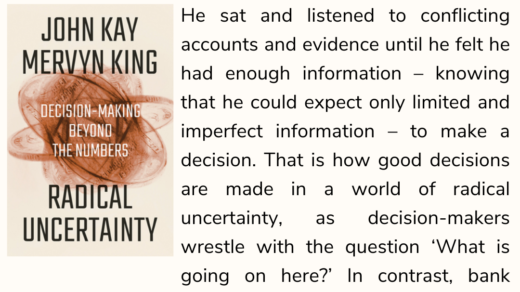The numbers showed that 25 percent of the effects of antidepressants were due to natural recovery, 50 percent were due to the story you had been told about them, and only 25 percent to the actual chemicals. “That surprised the hell out of me,” Irving told me in the front room of his home in Cambridge, Massachusetts. They assumed they had gotten their numbers wrong—that there was some mistake in their calculations. Guy was sure, he told me later, “there’s got to be something wrong with this data,” and so they kept going over it, again and again, for months. “I got so sick of looking at spreadsheets and data and analyzing it every which way possible,” he said, but they knew there must be a mistake somewhere. They couldn’t find any errors—so they published their data, to see what other scientists made of it. When Irving published these figures in a scientific journal, he expected a big fightback from the scientists who had produced all this data. But in fact, in the months that followed, he found there was—if anything—a feeling of shamefaced relief from many of them. One group of researchers wrote that it had been a “dirty little secret” in the field for a long time that the effects of these drugs on depression itself were in reality tiny. Irving thought, before he published, that he had a scoop, a previously unknown shocker. In fact, he had only discovered what many people in the field had privately known all along.
On mental health. The main thesis of this book is that our current approach towards depression, an approach that works based on the efficacy of drugs, does not really work that well after all. Rather, the placebo effect, the idea that just believing that a treatment works even if it might just be a sugar pill, seems to have a larger impact on recovery than the actual chemicals in the drugs.
What this means is that any approach that focuses mainly on dispensing drugs, like how we might do so for a flu, would not yield the most effective results.
Economic incentives and the tendency to focus on simple solutions might have compelled us to focus on constantly developing new antidepressants. However, it seems that issuing pills to a patient simply glosses over the problem, and does not deal with the fundamental cause of depression.
Depression can be a result of many factors. Chemical imbalances in the brain is only just one of them. Circumstances in life, family and many other factors and the amalgamation of these factors all contribute to this extremely complex issue. Focusing on chemicals and drugs, distracts us from really making progress on solving depression. I’ll be sharing more passages over the next few days as Hari goes into more details about his research on how we become depressed and what can we do to prevent this.



